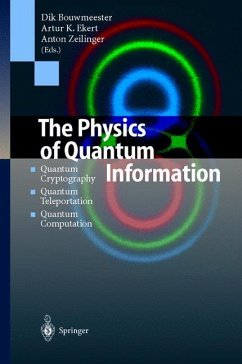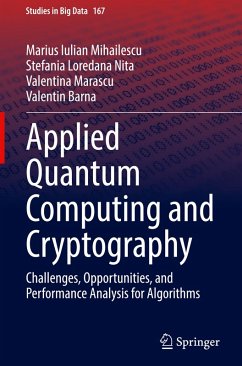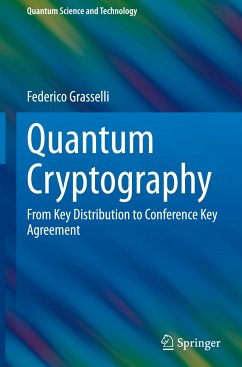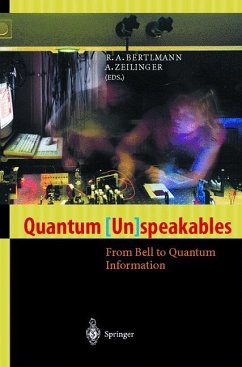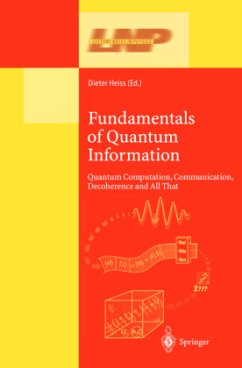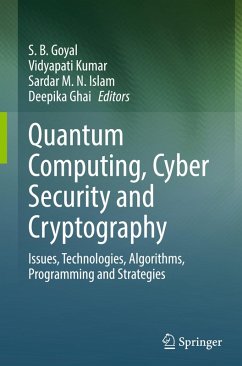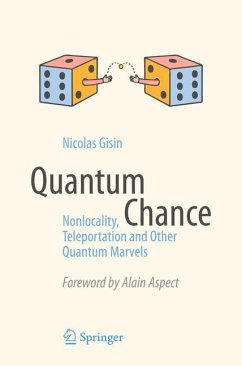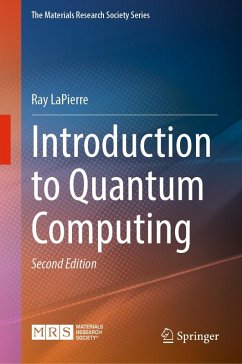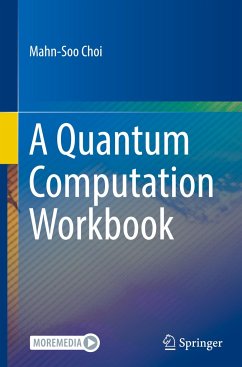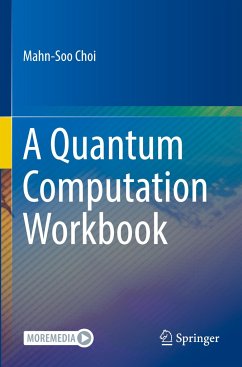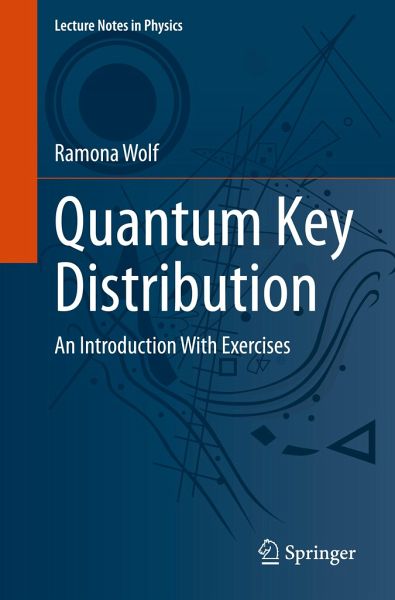
Quantum Key Distribution
An Introduction with Exercises

PAYBACK Punkte
16 °P sammeln!
This textbook introduces the non-specialist reader to the concepts of quantum key distribution and presents an overview of state-of-the-art quantum communication protocols and applications. The field of quantum cryptography has advanced rapidly in the previous years, not least because with the age of quantum computing drawing closer, traditional encryption methods are at risk.The textbook presents the necessary mathematical tools without assuming much background, making it accessible to readers without experience in quantum information theory. In particular, the topic of classical and quantum ...
This textbook introduces the non-specialist reader to the concepts of quantum key distribution and presents an overview of state-of-the-art quantum communication protocols and applications. The field of quantum cryptography has advanced rapidly in the previous years, not least because with the age of quantum computing drawing closer, traditional encryption methods are at risk.
The textbook presents the necessary mathematical tools without assuming much background, making it accessible to readers without experience in quantum information theory. In particular, the topic of classical and quantum entropies is presented in great detail. Furthermore, the author discusses the different types of quantum key distribution protocols and explains several tools for proving the security of these protocols. In addition, a number of applications of quantum key distribution are discussed, demonstrating its value to state-of-the-art cryptography and communication.
This book leads the reader through the mathematical background with a variety of worked-out examples and exercises. It is primarily targeted at graduate students and advanced undergraduates in theoretical physics. The presented material is largely self-contained and only basic knowledge in quantum mechanics and linear algebra is required.
The textbook presents the necessary mathematical tools without assuming much background, making it accessible to readers without experience in quantum information theory. In particular, the topic of classical and quantum entropies is presented in great detail. Furthermore, the author discusses the different types of quantum key distribution protocols and explains several tools for proving the security of these protocols. In addition, a number of applications of quantum key distribution are discussed, demonstrating its value to state-of-the-art cryptography and communication.
This book leads the reader through the mathematical background with a variety of worked-out examples and exercises. It is primarily targeted at graduate students and advanced undergraduates in theoretical physics. The presented material is largely self-contained and only basic knowledge in quantum mechanics and linear algebra is required.



